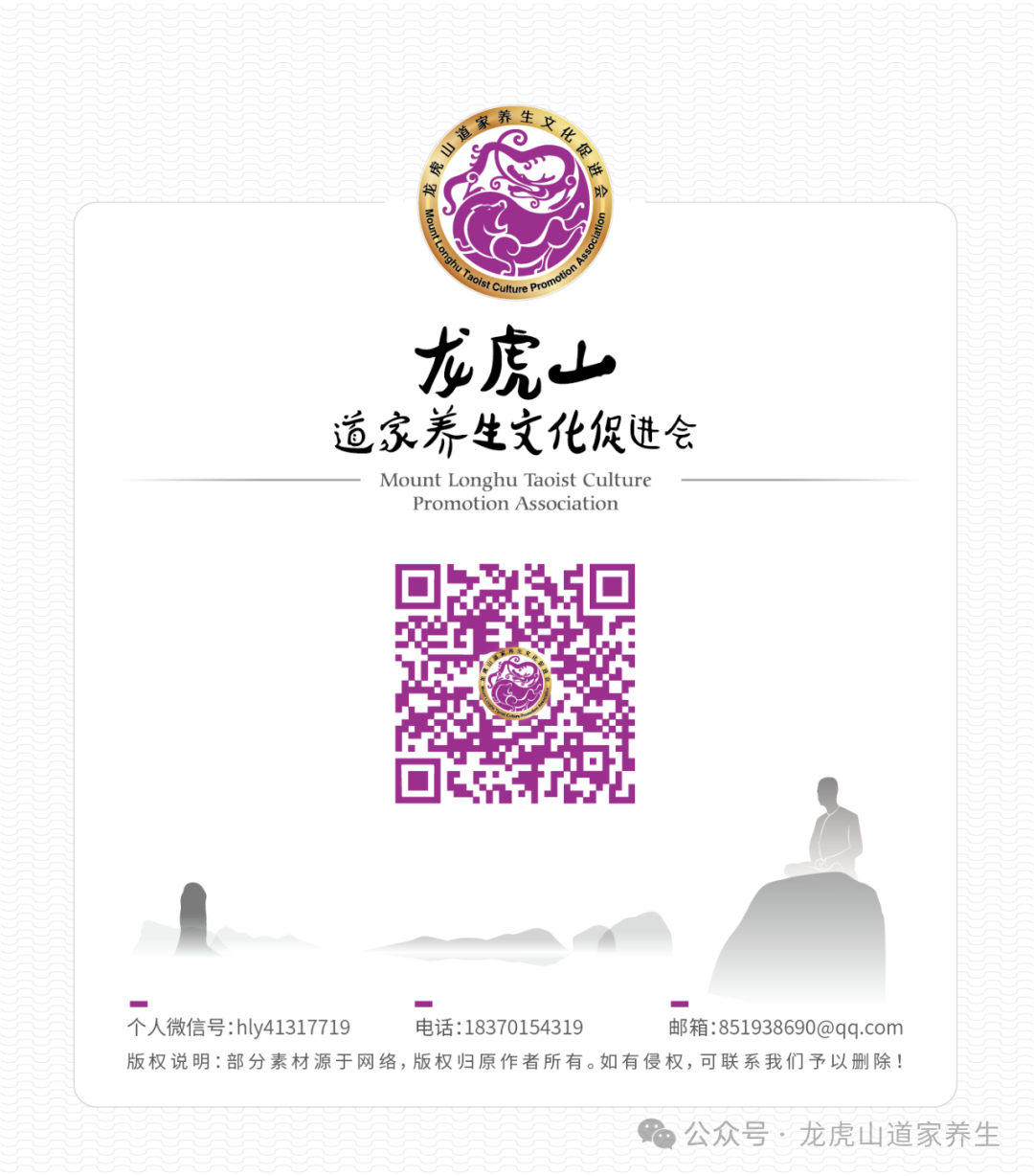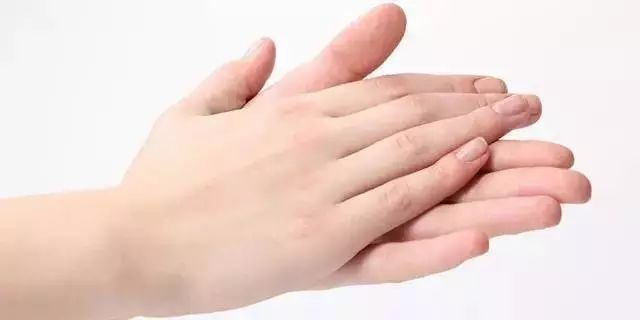
1
The Simplest Method for Qi Enhancement: Morning Hand Clapping
Hand clapping is very simple, yet its effects are profound.
Clapping is a vigorous and yang-natured health practice primarily aimed at enhancing Qi. The hands are the base of yang energy, while the feet are the base of yin energy. There are a total of 39 acupoints in the hands, and clapping can vibrate yang energy, promoting the circulation of Qi throughout the body.
Why clap in the morning?
Because in the morning, as the sun rises, the yang energy in the universe begins to accumulate, and the yang energy within the human body also starts to rise with the sun. By clapping at this time, it can promote the rise of yang energy, facilitating the flow of Qi throughout the body.
Emperor Qianlong lived a long life and wrote many poems, but few were truly great. One of his poems reflects the relationship between the hands and Qi and blood: “The palms rotate the sun and moon, time wishes to flow backward, the Qi and blood throughout the body are clear, when will I have white hair?” From a literary perspective, this poem may not be remarkable, but from a health perspective, it holds great value. He suggests that the secret to health and longevity lies in the palms, and mastering this secret can reverse the passage of time. What is this secret? It is clapping. Clapping can unblock the Qi and blood throughout the body; when the Qi and blood are clear, when will one have white hair? Although Emperor Qianlong’s poem may be exaggerated, clapping indeed has extraordinary effects on enhancing Qi.
There are twelve meridians in the human body, six of which are connected to the palms: the Taiyin Lung Meridian (Shǒu Tàiyīn Fèi Jīng), the Shaoyin Heart Meridian (Shǒu Shàoyīn Xīn Jīng), the Jueyin Pericardium Meridian (Shǒu Juéyīn Xīn Bāo Jīng), the Taiyang Small Intestine Meridian (Shǒu Tàiyáng Xiǎo Cháng Jīng), the Shaoyang Sanjiao Meridian (Shǒu Shàoyáng Sān Jiāo Jīng), and the Yangming Large Intestine Meridian (Shǒu Yángmíng Dà Cháng Jīng). Meridians are the pathways of Qi, connecting the internal organs. When the meridians are blocked, the flow of Qi is obstructed, leading to illness. Clapping can simultaneously unblock these six major meridians, and its effects should not be underestimated.

Why should we clap while shouting?
Our bodies are not only physical but also spiritual. Human spirit can be divided into three levels: the first level resides in the brain, known as consciousness, which people often use to think about money, beauty, and power; the second level resides in the heart, where emotions such as tranquility, anxiety, and fear often arise; the third level resides in the liver, referred to as the soul in TCM. The Huangdi Neijing states, “The heart houses the spirit, and the liver houses the soul.”
In Western terms, spirit and soul correspond to the subconscious. In the realm of consciousness, people need to think, while in the realm of the subconscious, they need tranquility, love, and gratitude. Consciousness can bring us wealth, while the subconscious can bring us health. For example, when a person sleeps, the consciousness in the brain rests, but the subconscious in the heart and liver continues to work, directing the stomach to digest and the blood to flow.
Therefore, for the body to be healthy, the functioning of the subconscious must be normal. At the same time, consciousness can also influence the subconscious, and one way to influence the subconscious is through suggestion. For instance, if you repeatedly say a certain phrase, it gives the body a suggestion, and over time, this phrase will transform from consciousness into the subconscious, directly entering the heart and liver, thus affecting our body. People in the park shouting, “I feel unblocked, and no diseases arise,” are using suggestion; over time, this consciousness will transform into the subconscious, influencing the entire body. Therefore, sometimes a person’s intention can be more effective than the best medicine.
2
Basic Hand Clapping Qi Enhancement Method
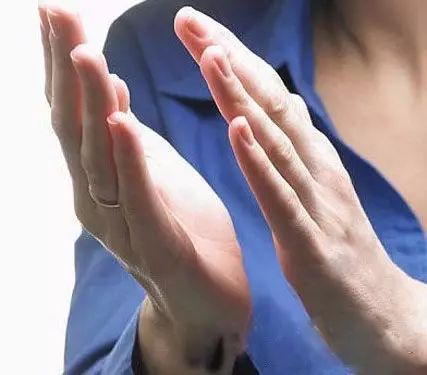
Spread your ten fingers, palms facing each other, fingers aligned, and clap evenly. Remember to keep the thumbs apart from the other four fingers to avoid excessive clapping that may cause bruising. Start with gentle claps and gradually increase the intensity. Clap with a force that your hands can bear, but do not clap too lightly. Otherwise, it will not stimulate the acupoints and reflex zones in the palms.
Clapping is best done in the morning. If the noise from clapping is too loud to bear, you can also clap with “hollow palms.” Curve your palms, spread your fingers, and when you clap down, aim for the tips of your fingers and the edges of your palms. However, this method has a smaller impact area, so the effect may be slightly less, thus requiring a longer duration of clapping.
In addition to the basic palm clapping, you can also clap the backs of your hands against each other, clap the tiger mouth of each hand against each other, bend the palms of both hands to clap, strike one palm with the edge of the other hand, and clap fists against each other. Do not underestimate these small movements; they are all significant. If you carefully read the chart of palm acupoints and reflex zones, you will understand that each small movement targets one or several important acupoints and reflex zones. Stimulating them can unblock the meridians and ensure the smooth flow of Qi and blood.
3
Advanced Hand Clapping Qi Enhancement Method
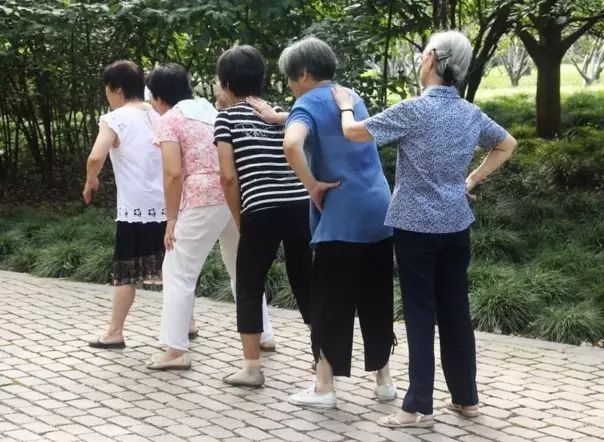
(1) Lightly clap the back of your hands against your back and spine
Each segment of the spine has acupoints of the Governing Vessel. The Governing Vessel is one of the eight extraordinary meridians in the body, regulating the Qi and blood of the yang meridians, resisting external pathogens, warming the meridians, and nourishing the internal organs. Clapping the back with clenched fists on the mingmen point on the Governing Vessel can tonify Qi, nourish the kidneys, strengthen the waist, and support the righteous Qi. If you can also lightly clap the acupoints along the bladder meridian on your back, the Qi enhancement effect will be even more pronounced.
(2) Clap the backs of both hands against the upper part of the coccyx and the outer sides of the buttocks
The end of the coccyx, known as the “tailbone” in Daoism, is the starting point for unblocking the Governing Vessel, with the immortal bone resting above it. Clapping this area can strengthen the Qi of the Governing Vessel, thus promoting bowel movements. Friends with constipation can try this method; it is simple and effective.
Next, alternate clapping the midline of the left and right buttocks, which is where the Foot Taiyang Bladder Meridian runs, clapping the bladder meridian helps with diuresis. Finally, alternate clapping the outer sides of the buttocks, where the Foot Shaoyang Gallbladder Meridian runs; clapping here can promote bile secretion and enhance the digestive, blood supply, and detoxification functions of the liver and gallbladder.
Many beauty-conscious women often complain about dull skin and spots, which are actually caused by toxins in the body. By using this method daily to clap, you can enhance the Qi of the Governing Vessel, promote bowel movements, and expel toxins from the body. When the body is clean, the skin naturally becomes fair and radiant, exuding a captivating glow from within.
(3) Lightly clap the abdomen
Use both palms to lightly clap the abdomen. Several meridians pass through the abdomen: the Ren Meridian (Rèn Mài), the Foot Yangming Stomach Meridian (Zú Yángmíng Wèi Jīng), the Foot Shaoyin Kidney Meridian (Zú Shàoyīn Shèn Jīng), the Foot Taiyin Spleen Meridian (Zú Tàiyīn Pǐ Jīng), and the Foot Jueyin Liver Meridian (Zú Juéyīn Gān Jīng). Alternating clapping here helps to strengthen the Qi of the spleen, stomach, liver, and kidneys. The Ren Meridian runs through the center of the abdomen, encompassing the Qi of all the yin meridians, responsible for the body’s essence, blood, and fluids. If the Ren Meridian is obstructed, issues in the urinary and reproductive systems may arise, such as irregular menstruation, impotence, hernias, and pelvic masses. Regularly lightly clapping the Ren Meridian in the abdomen can stimulate the secretion of human hormones, regulate the yin meridians, and thus delay aging. Lightly clapping the abdomen is beneficial for liver and gallbladder diseases, urinary and reproductive systems, digestive systems, nervous systems, and ophthalmic diseases. Some people instinctively pound their lower back when experiencing back pain; in reality, back pain may be caused by poor circulation of Qi and blood in the liver meridian. Persistently lightly clapping the abdomen can improve and cure back pain symptoms.
(4) Fist clapping
One hand clenches into a fist while the other hand remains open, clapping the fist against the palm can strengthen the strength of the palm’s muscles and bones, thereby enhancing the circulation of Qi and blood throughout the body. When performing this action, coordinate with your feet, either walking or stepping while clapping. Nowadays, people often drive or take elevators, leading to fewer opportunities for walking, causing the feet to become weak. The Qi of the six meridians in the feet may be insufficient, leading to a decline in the functions of the liver, gallbladder, spleen, stomach, kidneys, and bladder.
Just like the hands, the feet also have many reflex zones that connect to the internal organs. If the Qi and blood in the foot reflex zones are blocked, corresponding organs will develop diseases. If you practice clapping while walking, both hands and feet will receive massage stimulation, which is an excellent method for health maintenance and disease prevention.
4
Standing Post Qi Enhancement Method
Another simple method for enhancing Qi is standing post.
“To wash the marrow, one must start with standing post,” standing post is a posture that can mobilize the Qi of the entire body, promoting the circulation of Qi and blood.
Standing post can nourish the spirit and strengthen the body; it can enhance mental strength and increase physical strength. Many people may think that standing post is just squatting; who can’t do that? How can it be so magical? Squatting is one form of standing post, but there are many types of standing post. Do not underestimate this practice; “A thousand movements are not as good as one stillness, a thousand practices are not as good as one standing.”
When a person is young, the lower jiao (lower abdomen) is generally more solid, while the upper jiao (upper abdomen) is more deficient. The upper jiao refers to the heart and lungs, while the lower jiao refers to the liver and kidneys. When the upper jiao is deficient and the lower jiao is solid, the yuan yang is sufficient, and the head is clear, leading to vitality. This is like a clear sky, with gentle winds and light clouds above, and lush trees below. However, as one ages, the body gradually shifts to a state of lower jiao deficiency and upper jiao excess. When the upper jiao is deficient and the lower jiao is solid, the head feels light and the feet feel heavy; when the lower jiao is deficient and the upper jiao is solid, the head feels heavy and the feet feel light. Therefore, Traditional Chinese Medicine believes that upper jiao deficiency and lower jiao solidity is a sign of health, while upper jiao solidity and lower jiao deficiency is a sign of illness.

Why does one experience upper jiao solidity and lower jiao deficiency?
This is because the flow of Qi is obstructed, causing Qi to concentrate in the upper part and not descend, leading to solidity above and deficiency below. The universe is a vast cosmos, and the human body is a small universe; the laws of the human body follow the laws of the universe. Between heaven and earth, clear Qi rises, and turbid Qi sinks; within the human body, clear Qi should rise, and turbid Qi should sink. If the lower part is deficient, like deforestation and soil erosion, then the upper part will become solid, leading to sandstorms covering the sky.
So how can we improve this situation? The national policy is to plant trees and create forests, allowing the lower part to become solid first; once the lower part is solid, the upper part will naturally become deficient. The principles of TCM health preservation are similar: to allow the Qi of the upper jiao (heart and lungs) to descend, one must first enrich the Qi of the lower jiao (liver and kidneys). One method is standing post. The key to standing post is the word “posture”; the posture must stabilize the lower half of the body, creating a sense of rooting. When you stand still, with your head reaching for the sky and your feet grounded, the body gains a root, and the Qi within will gradually return to its original position, with what should rise rising and what should sink sinking, clear Qi rising and turbid Qi sinking. Over time, the body will return to a state of upper jiao deficiency and lower jiao solidity. This is akin to a glass of murky water; the more you stir it, the murkier it becomes. If you let it sit still, the lighter substances will float to the top, and the heavier substances will sink to the bottom, and soon you will see a clear glass of water.
When standing post, bending the elbows and raising the arms, and slightly bending the knees, aims to lower the body’s center of gravity, filling the lower part. When the lower part is filled, the kidney essence will be enriched; when the kidney essence is enriched, the zong qi will flow smoothly, and the Qi of the heart and lungs will descend while the Qi of the liver and kidneys will rise. This way, a person enters a state of upper jiao deficiency and lower jiao solidity, promoting health and longevity. The Huangdi Neijing has specific discussions on standing post: “Grasping yin and yang, breathing in essence, standing alone and guarding the spirit, bones and flesh as one, thus can one live long and cover the heavens…”
Centuries of practice have proven that standing post is one of the best methods for replenishing yuan qi. Once the yuan qi is full, a person will be strong and robust, capable of resisting all diseases. Many healthy individuals practice standing post for a long time and enjoy longevity. Those who are weak and sickly can also benefit from standing post. Standing post can not only unblock the meridians and harmonize Qi and blood, allowing yin and yang to intersect, and accelerate metabolism, but it can also strengthen the functions of various organs and cells, providing excellent effects for many chronic diseases such as hypertension, heart disease, diabetes, obesity, hyperlipidemia, and gout.

The Most Basic Standing Post Qi Enhancement Method
Here, I will introduce a very basic standing post Qi enhancement method. Before practicing standing post, one should empty the bladder and bowels, loosen clothing and belts, and avoid practicing one hour before and after meals.
1. Feet: Stand with both feet in an inward “eight” shape, with both hands raised to the chest. The feet should not be too wide, with the heels slightly wider than the shoulders, and the toes approximately shoulder-width apart.
2. Head: Keep the head upright, neck straight, chest slightly out, and back straight. Keep the mouth slightly closed, tongue against the upper palate, and maintain a calm demeanor. Gaze forward, breathe naturally, and relax the entire body. This helps balance and harmonize the Qi throughout the body.
3. Hands: Let the fingers naturally spread, as if there is a balloon in the middle, and both hands should carefully hold and embrace it. The arms should be rounded, forming a semi-circle with the body. The hands can start lower and then gradually rise, but they should not be higher than the shoulders or lower than the navel.
4. Shoulders: Relax the shoulders, do not tense them or raise them. The shoulders should hang naturally and relax downwards. At this time, the collarbone and chest may feel slightly heavy, so when the shoulders relax, they should also push outward to the sides. Some people sweat after standing post for a long time, and their hands feel cold; this is because the shoulders and elbows are not relaxed, obstructing the flow of Qi. Therefore, before practicing standing post, shake and relax the shoulders, and rotate them forward and backward.
5. Knees: Keep the knees slightly bent, not extending beyond the toes, with the thighs feeling empty, resembling a sitting position without actually sitting.
6. Body: Keep the upper body straight, do not arch the back or stick out the buttocks. The chest should be slightly contained, and the back should be straight. The abdomen should relax and slightly retract. The perineum should be lifted, and the coccyx should hang down towards the ground. Lifting the perineum allows Qi to rise; combined with the head reaching for the sky, this connects the upper and lower Qi, achieving balance and fullness of internal Qi, thus displaying a posture of “standing like a pine,” tall and robust, with abundant internal Qi. When the internal Qi is sufficient and smooth, the body will naturally lower. When lowering, the knees should not extend beyond the toes; this way, standing post can both build strength and enhance energy. However, be sure to keep the coccyx hanging down; otherwise, the Qi will only rise and not descend, leading to an imbalance that may cause high blood pressure.
Maintain this posture, relax the entire body as much as possible, and think of nothing, allowing Qi and blood to flow naturally. Generally, stand for at least 30 minutes. When first practicing standing post, it may feel strenuous, and the knees and thighs may ache. Some may even tremble; this is a normal reaction and is not a concern. The trembling will gradually subside. When experiencing leg pain, it is essential to persist; the pain is due to insufficient Qi in the body, unable to support its weight. At this time, you can use your mind to sense which part is sore and how it feels; Qi will flow with your intention, and when your intention reaches the sore area, Qi will be infused into that area. Once the Qi in that area gradually fills up, the pain will disappear, and your body will be able to squat lower and more steadily. Everyone must remember that while standing straight may seem easier, the more upright you are, the less effective it is. If you can squat a little lower, try to do so. Of course, when squatting, do not force yourself to sit down; just go as low as feels comfortable.
5
Six Character Formula for Qi Enhancement

The Six Character Formula for Qi Enhancement is an ancient breathing method passed down through generations, with the primary function of guiding and mobilizing the Qi of the five internal organs. When the Qi of the five internal organs is turbid, a person becomes ill. If the turbid Qi of the five internal organs is expelled and fresh Qi is inhaled, health can be restored. How can we expel the turbid Qi from the body? The ancients invented the Six Character Formula—xū, kē, hū, xì, chuī, xī.
Making the sound “xū” can expel the toxic Qi from the liver.
Making the sound “kē” can expel the toxic Qi from the heart.
Making the sound “hū” can expel the toxic Qi from the spleen.
Making the sound “xì” can expel the toxic Qi from the lungs.
Making the sound “chuī” can expel the toxic Qi from the kidneys.
Making the sound “xī” can expel the toxic Qi from the Sanjiao.
By expelling the toxic Qi from the internal organs using the Six Character Formula and inhaling the fresh Qi from heaven and earth, the Qi of the five internal organs circulates and renews daily, stimulating their potential, leading to a vibrant spirit and longevity.
How to expel the toxic Qi from the liver
To expel the toxic Qi from the liver, make the sound “xū—”. First, stand with your feet shoulder-width apart, head upright and neck straight, chest slightly out, back straight, and knees slightly bent, relaxing the entire body and breathing naturally.
“Xū” (xū). The mouth should be slightly closed, with a horizontal tension, the tongue slightly retracted, and a small gap between the upper and lower teeth.
As you exhale while saying “xū”, gently tap your big toe on the ground, and slowly raise your hands from your lower abdomen, palms facing each other, up to shoulder level, spreading your arms like a bird’s wings, with palms facing upwards. Your eyes should look inward, and as you exhale, try to widen them. After exhaling, inhale while lowering your arms in front of your body, letting them fall to your sides. Repeat this action six times for one round, then take a moment to adjust your breathing.
The “xū” Qi Gong can treat eye diseases, liver enlargement, chest and rib distension, loss of appetite, dry eyes, dizziness, and more.
How to expel the toxic Qi from the heart
To expel the toxic Qi from the heart, make the sound “kē—”. “Kē” (kē). The mouth should be half-open, with the tongue touching the lower teeth and pressing down.
As you exhale while saying “kē”, gently tap your big toe on the ground; raise your palms from your lower abdomen, moving them in front of your body to the center of your chest, then flip your palms outward, lifting them to eye level. After exhaling, inhale while lowering your arms in front of your body, letting them fall to your sides, and repeat this action six times for one round, then take a moment to adjust your breathing.
The “kē” Qi Gong treats palpitations, angina, insomnia, forgetfulness, night sweats, mouth and tongue ulcers, and speech difficulties related to heart diseases.
How to expel the toxic Qi from the spleen
To expel the toxic Qi from the spleen, make the sound “hū—”. “Hū” (hū). The mouth should be pursed, with the tongue slightly curled upwards and extended forward.
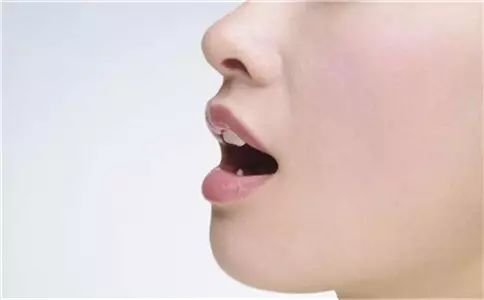
As you say “hū”, gently tap your big toe on the ground, raise your hands from your lower abdomen, palms facing up to the navel, with the left hand rotating outward to lift to the top of the head while the right hand presses down to the lower abdomen. After exhaling, inhale while lowering your left arm and raising your right arm, repeating this action six times for one round, then take a moment to adjust your breathing.
The “hū” Qi Gong treats abdominal distension, diarrhea, fatigue in the limbs, loss of appetite, muscle atrophy, and skin edema related to spleen diseases.
How to expel the toxic Qi from the lungs
To expel the toxic Qi from the lungs, make the sound “xì—”. “Xì” (xì). The mouth should be open, with the tongue lightly touching the lower palate.
As you say “xì”, raise your hands from your lower abdomen, gradually turning your palms upwards to chest level, then spreading your arms wide like a bird’s wings. After exhaling, lower your arms to your sides, repeating this action six times for one round, then take a moment to adjust your breathing.
How to expel the toxic Qi from the kidneys
To expel the toxic Qi from the kidneys, make the sound “chuī—”. “Chuī” (chuī). The mouth should be pursed, with the lips forming the sound.
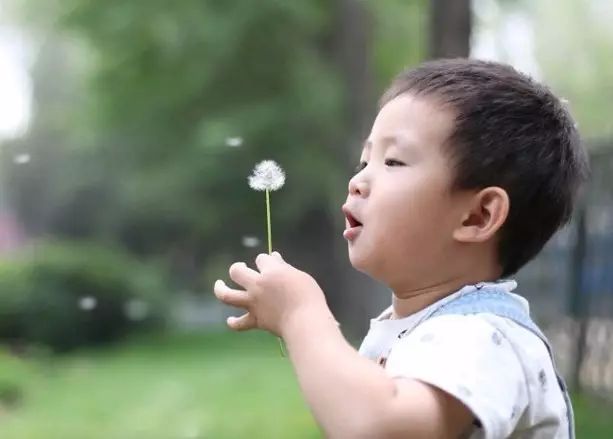
As you say “chuī”, gently tap your toes on the ground, raise your arms from your sides, drawing a semicircle in front of your body, lifting them to shoulder level, and then lowering them to your knees. After exhaling, inhale while standing up slowly, letting your arms fall to your sides. Repeat this action six times for one round, then take a moment to adjust your breathing.
The “chuī” Qi Gong can treat soreness in the waist and knees, night sweats, premature ejaculation, impotence, and coldness in the uterus related to kidney diseases.
How to expel the toxic Qi from the Sanjiao
To expel the toxic Qi from the Sanjiao, make the sound “xī—”. “Xī” (xī). The mouth should be slightly open, with the tongue slightly retracted and the tip pointing downwards, appearing joyful.
As you say “xī”, gently tap your toes on the ground, raise your hands from your sides as if holding something, moving them over your abdomen to chest level, then lifting them towards your head. As you inhale, spread your fingers and let your hands fall down along your body to your toes. Repeat this action six times for one round, then take a moment to adjust your breathing.
The “xī” Qi Gong treats dizziness, tinnitus, throat pain, chest and abdominal distension, and urinary difficulties caused by Sanjiao obstruction.
The complete practice of the Six Character Formula involves performing each sound six times, practicing three rounds in the morning and evening, and over time, you will see results.
Meridians are like iron railways, connecting the five internal organs and the limbs. Acupoints are the stations along these railways, primarily serving to replenish water and fuel for the trains, increasing their power. Qi and blood are the cargo carried by the trains.
Qi is the commander of blood, and blood is the mother of Qi; Qi is the driving force for blood circulation. When the train carrying Qi and blood travels a distance along the railway, the Qi gradually weakens, and the train must stop at the next station to replenish Qi to continue moving forward. In the human body, there are ten most important acupoints for replenishing Qi; these acupoints are responsible for supplying true Qi to each meridian, increasing their power.

In October, join us for a Daoist health and wellness journey at Longhu Mountain!
